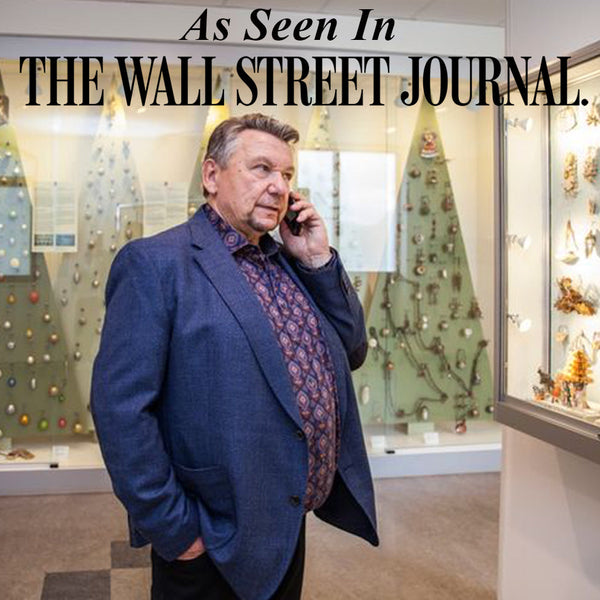
As Seen in the Wall Street Journal!
By Alistair MacDonald - Photographs by Sonja Och for The Wall Street Journal
Updated Sept. 24, 2021 at 12:39 pm ET
Klaus Müller-Blech is sending Christmas to Gettysburg, Pa., in a 1,000-foot long container ship. So far it’s running three months late thanks to global transportation congestion.
Mr. Müller-Blech, 62 years old, is the Christmas King of Germany, importing mass-produced decorations from Asia that he resells across the West alongside the handblown glasswork that his family has been crafting for 13 generations.
The slow and expensive global journeys of Mr. Müller-Blech’s baubles, trees and ornaments show how every aspect of international transportation is under stress ahead of the busy Christmas season.
The onset of the pandemic and resulting slump in trade idled ships, which along with their containers, were then out of position when consumer demand rebounded this year. Continued Covid-19 outbreaks meant workers missed shifts, closing some port terminals, keeping truck drivers home and slowing cross-border movements. The blocking of the Suez Canal in March further muddled schedules.
Around the world, toy makers, booksellers, large retailers and manufacturers are already warning that some products won’t be in place in time for Christmas, while extra shipping costs and delays are adding to bills for both buyers and sellers.
For Mr. Müller-Blech’s Inge’s Christmas Decor GmbH, the cost of renting a 40-foot container from Asia to Europe has increased 10-fold to as much as $18,000, and it arrives up to eight weeks late. His shipment to Gettysburg’s The Christmas Haus store was supposed to arrive at the Port of Baltimore in June. It set off from Germany in late August and arrived Tuesday. Now it’s on a truck.
When Mr. Müller-Blech was a child, he helped out at the family business, and every day was Christmas. Many of the traditions the West now knows as Christmas hail from Germany. Today, Mr. Müller-Blech runs a museum in his hometown of Neustadt bei Coburg, in central Germany, devoted to the history of Christmas decorations, and ships some 4,500 types and models of decoration to 2,500 customers in 28 countries. Last year he sold some 15 million tree baubles.
Festive decorations would typically be appearing on the shelves of some stores by the end of this month, but only around half Mr. Müller-Blech’s yearly cargo is on its way to clients.
“Everything has changed,” Mr. Müller-Blech said of the pandemic’s impact. “You just go to work in the morning, you turn on your computer, and then OK, fantastic, there has been another delay.”
